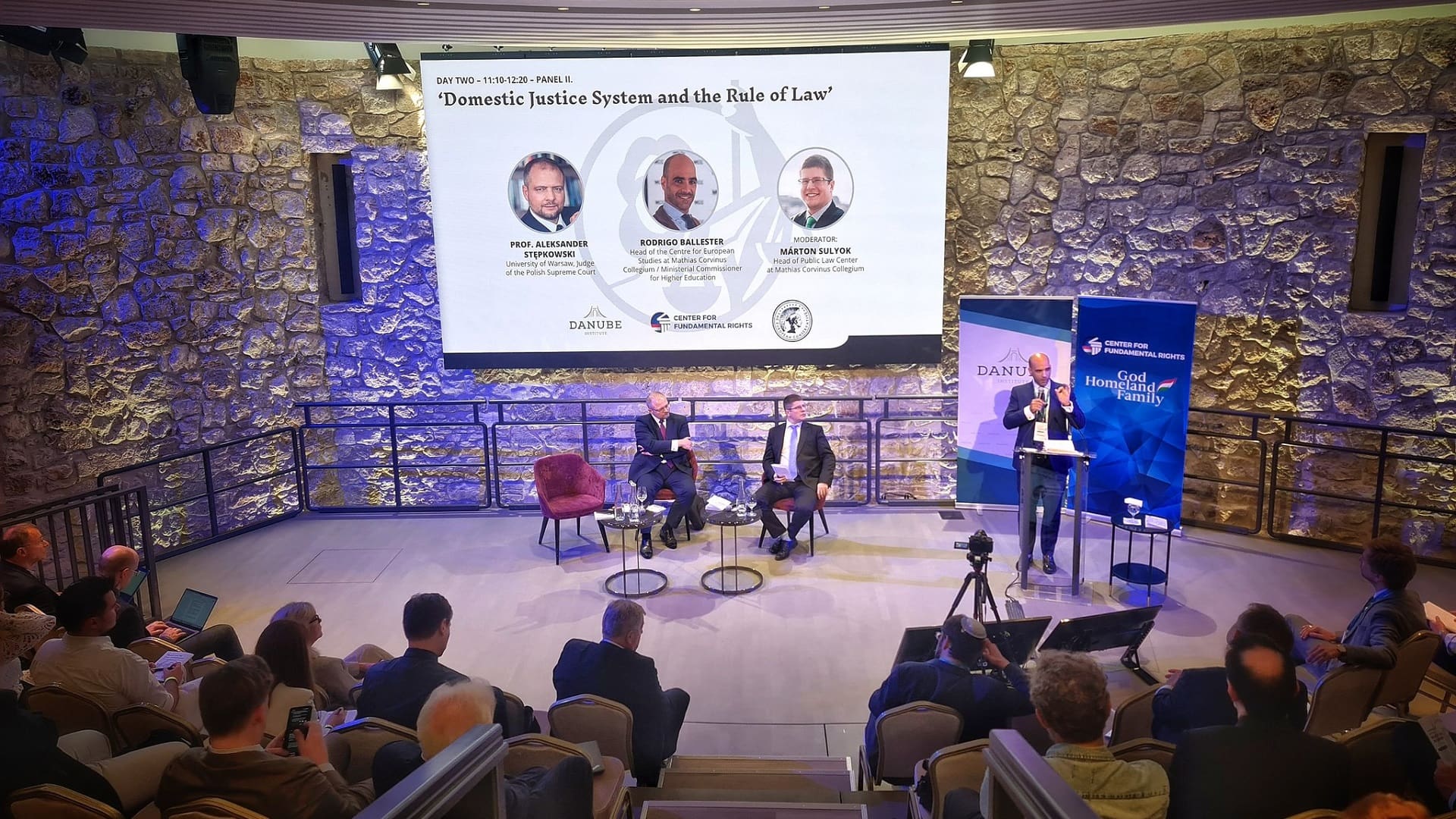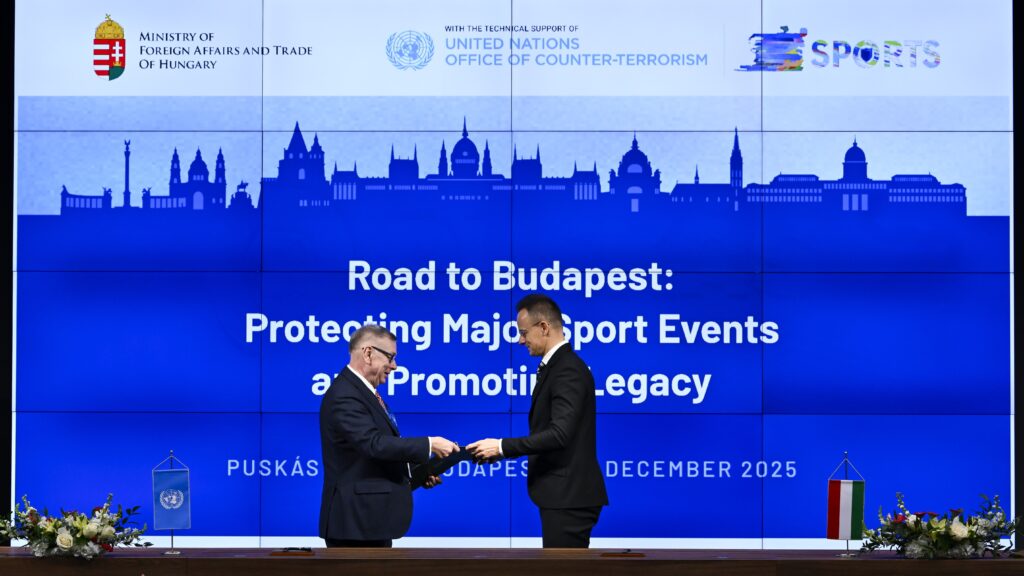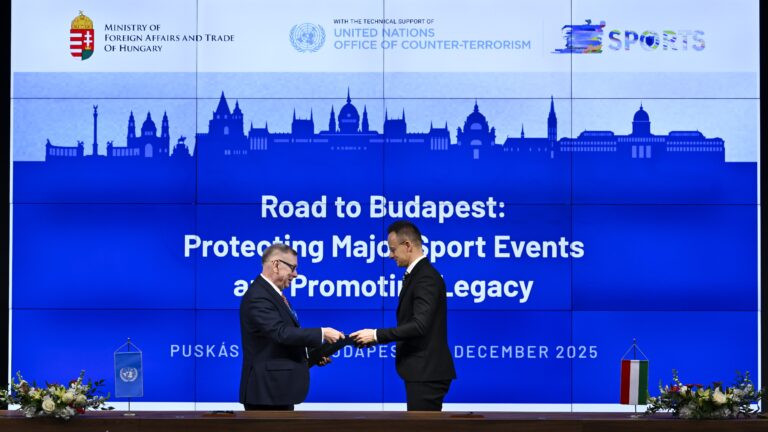Another day of discussing one of the most important legal and political concepts of our time, rule of law, awaited the many attendees on the second day of the Danube Institute’s conference titled Rule of Law as Lawfare on 28 May in Budapest. István Stumpf, a former justice on the Constitutional Court of Hungary and a close advisor to Prime Minister Viktor Orbán of Hungary, kicked off the event, co-organized by the Center for Fundamental Rights and The European Conservative, with an insightful speech.
Mr Stumpf started by pointing out that there are many disagreements on the exact definition of the rule of law even among legal scholars.
He cited one specific theory, according to which ‘the state, accountability, and the rule of law’ are the three most important elements in the political development of mankind; and the speaker believes that the relationship between these three concepts is still one of the most interesting questions in modern political science.
As he pointed out, recently, both sides of the political spectrum in both North America and Europe like to accuse the other of disregard for the rule of law. For example, Mr Stumpf believes that lax voting laws proposed by the liberal Democratic Party in the US may go against rule of law ideals, as they compromise election integrity.
He then went on to talk about the rule of law concept as a cultural one, and how its interpretation may differ in different places of the world. The globalist bureaucrats in Brussels, for example, favour an interpretation which has an aversion against national sovereignty. Thankfully, the speaker continued, we have seen some conservative pushback in defence of national sovereignty in recent years; most notably, the Brexit referendum in 2016.
He also stated that
EU bodies have ‘weaponized’ the concept of rule of law recently, which they are able to do because of its lack of clear legal definition.
The European Union has been using the concept to push the idea that EU regulations have supremacy over national constitutions, something which Mr Stumpf, as a strong proponent of national sovereignty, evidently rejects.
Prof. Dr Reinhard Merkel from Universität Hamburg took the stage next, to talk about the unique German phrase ‘Rechtsstaat,’ which he stated has no exact translation in any other language—so, while it is a similar concept, it is not exactly translatable to ‘rule of law’.
He cited 18th-century German philosopher Immanuel Kant as the originator of the idea of Rechtsstaat. Kant defined the second part of the phrase, ‘staat’ meaning ‘state,’ as ‘a union of a multitude of people under legal laws;’ while he defined ‘law’ as ‘a sum of conditions under which the choice of one can be united with the choice of another in accordance with the universal law of freedom’.
Professor Merkel then gave a definition of the whole phrase in question, Rechtsstaat, saying: ‘Rechtsstaat means the idea of a state in which the limits of state power are defined in theory with regard to the individual freedom of citizens.’
However, this does give rise to tension between the freedom of citizens and the interest of the state at times. He gave the 2005 aviation law passed by the Bundestag as an example, which was ruled unconstitutional by the Federal Court of Justice in Germany. One passage in the law gave the state authority to shoot down a hijacked passenger plane, in case of a terrorist attack similar to 9/11. However, the high court ruled that the state has no right to kill innocent civilians, who are the victims of a crime themselves, even if it could save more citizens with that act. As Professor Merkel put it, ‘forced solidarity’ is not mentioned in the German constitution, so he agreed with the decision.
Gát Ákos Bence on X (formerly Twitter): “It was high time we came together at an international conference to speak out against the use of the rule of law as a political weapon.- Over 40 distinguished speakers from around the world, including from the USA, Australia, the UK, Hungary, Poland, Israel, Germany and Spain…. pic.twitter.com/ywayHRVGf8 / X”
It was high time we came together at an international conference to speak out against the use of the rule of law as a political weapon.- Over 40 distinguished speakers from around the world, including from the USA, Australia, the UK, Hungary, Poland, Israel, Germany and Spain…. pic.twitter.com/ywayHRVGf8
Márton Sulyok, Head of the Public Law Center at Mathias Corvinus Collegium; Professor Aleksander Stępkowski, a judge of the Polish Supreme Court; and Rodrigo Ballester, Head of the Center for European Studies at Mathias Corvinus Collegium gathered for a discussion about the domestic justice systems and the rule of law next.
Mr Sulyok started by saying that the political level is ‘the natural habitat’ of the rule of law concept, as it was originally intended. He then expressed his opinion that
‘EU powers should be inside the scope of competence given to it by its Member States,’
something, he believes, the EU is trying to not abide by. He also talked about the European Court of Human Rights, an international court with supranational power. In a landmark case cited by Mr Sulyok, the ECtHR overruled a decision by the Supreme Court of Iceland in December 2020.
Professor Stępkowski pointed out that his home country of Poland’s new constitution adopted after the fall of the communist regime defines the new Republic of Poland as ‘a democratic state under the rule of law’. He then pointed out that the concept of rule of law has changed a lot over time, from its common medieval interpretation, to its modern interpretation, to its postmodern interpretation championed by EU bureaucrats today, which calls for a supranational power to enforce the rule of law at times in direct conflict with a country’s national sovereignty.
Meanwhile, Mr Ballester lamented the fact that while the EU is so gung-ho to punish supposed rule of law violations by certain Member States, it does abide by its own rules mandated by treaties, so they are certainly not leading by example. One such he cited was the suspension of Hungarian universities from the Erasmus programme, despite the EU having no mandate anywhere to police its Member States’ higher education systems.
Related articles:







